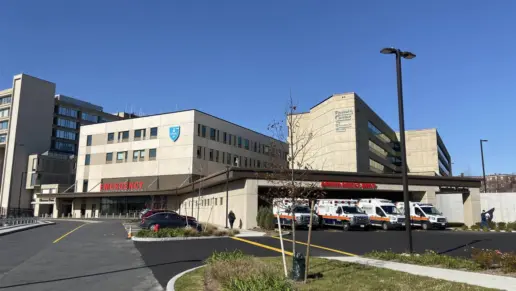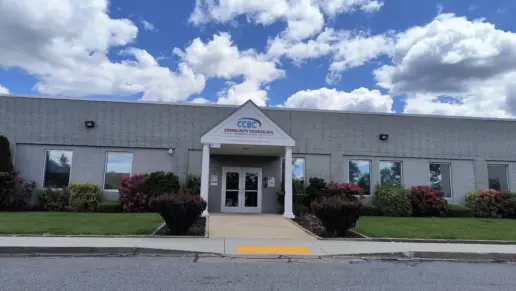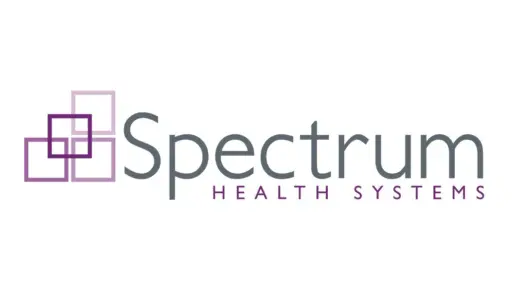About Carlson Center
Behavioral Health Network’s Carlson Recovery Center is a drug and alcohol addiction treatment center for adults located in Springfield, Massachusetts. They provide specialized levels of care, including medically supervised detox, inpatient treatment, partial hospitalization and intensive outpatient programs and aftercare support. They focus on evidence based practices and individuals receive comprehensive support tailored to their unique needs throughout the rehabilitation process.
Their medically supervised detoxification program helps clients safely and comfortably withdraw from alcohol, opioids and other substances. Experienced medical professionals closely monitor individuals to manage withdrawal symptoms and promote stability during this critical phase.
Following detox, you may transition into the inpatient rehabilitation program. This program provides intensive, round the clock care within a secure and supportive environment. They use a combination of therapies and individualized treatment plans and you’ll receive comprehensive support to address the underlying causes of addiction and develop essential coping skills.
Their outpatient programs are a step down from inpatient care and allow clients to receive treatment without living on campus. Through their outpatient services, they provide ongoing support for patients who have completed higher levels of treatment or require flexible treatment options. Outpatient services include therapy sessions, counseling and access to community resources to support individuals in maintaining their recovery efforts.
Their services offer structured treatment during the day which allows individuals to return home or reside in a supportive living environment. This level of care provides intensive therapy, counseling and skill building sessions to support individuals in their recovery journey while promoting their reintegration into daily life.
If you require a lower level of care then you can participate in intensive outpatient services. This program follows a comprehensive treatment approach that incorporates counseling and educational sessions focused on relapse prevention, personal growth and sustained progress toward recovery.
Following treatment, providers may connect you to local resources that can support your continued recovery. This may include linkages to sober living residences, transportation, food assistance and related services.
Latest Reviews
Rehab Score
Gallery
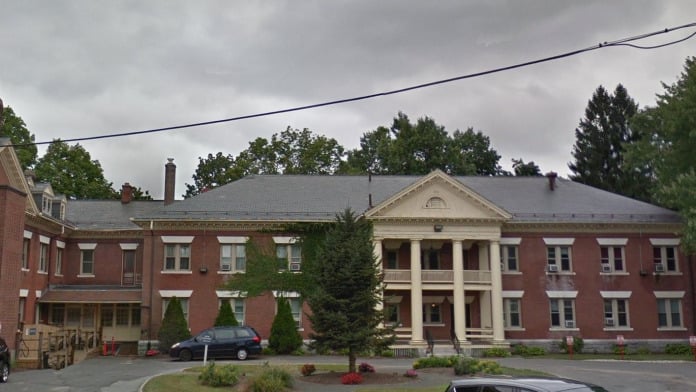
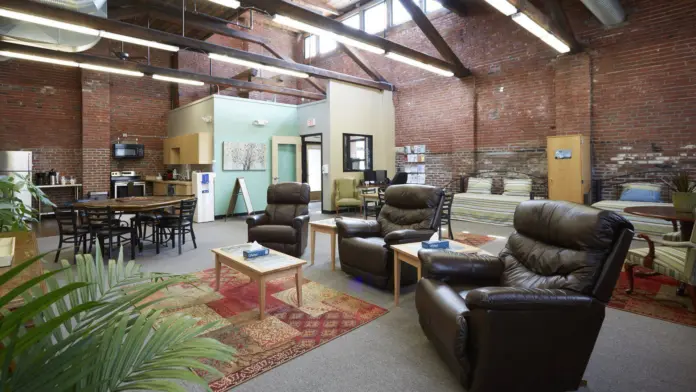
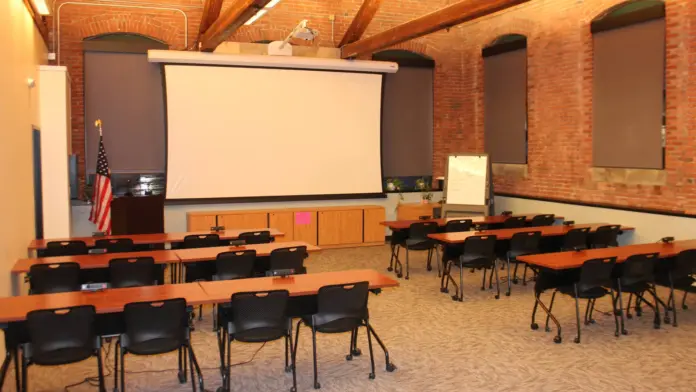
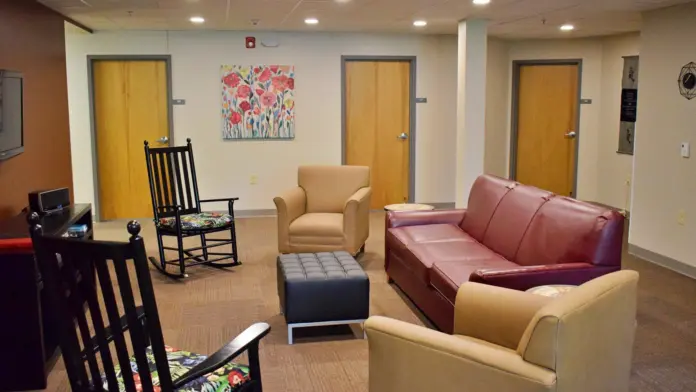
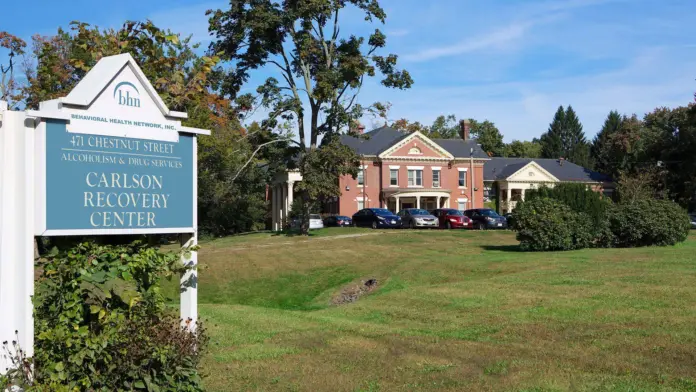
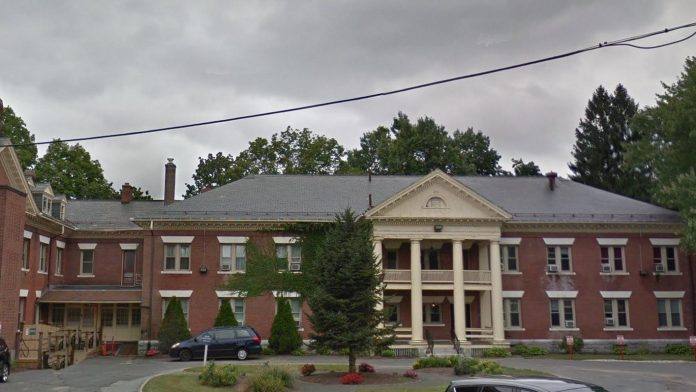
Location
Accepted Insurance
Other Forms of Payment
Medicaid is a state based program that helps lower-income individuals and families pay for healthcare. Medicaid covers addiction treatment so those enrolled can use their coverage to pay for rehab. When a program accepts Medicaid the client often pays very little or nothing out of their own pocket.
Private insurance refers to any kind of healthcare coverage that isn't from the state or federal government. This includes individual and family plans offered by an employer or purchased from the Insurance Marketplace. Every plan will have different requirements and out of pocket costs so be sure to get the full details before you start treatment.
Self-pay involves paying for treatment out of your own pocket. You can use savings or credit, get a personal loan, or receive help from family and friends to fund your treatment. If you don't have insurance or your insurance plan doesn't cover a specific program, self-pay can help ensure you still get the care you need.
Financial aid can take many forms. Centers may have grants or scholarships available to clients who meet eligibility requirements. Programs that receive SAMHSA grants may have financial aid available for those who need treatment as well. Grants and scholarships can help you pai for treatment without having to repay.
Sliding scale payments are based on a client's income and family size. The goal is to make treatment affordable to everyone. By taking these factors into account, addiction recovery care providers help ensure that your treatment does not become a financial burden to you or your family, eliminating one barrier to care.
Medicare is a federal program that provides health insurance for those 65 and older. It also serves people under 65 with chronic and disabling health challenges. To use Medicare for addiction treatment you need to find a program that accepts Medicare and is in network with your plan. Out of pocket costs and preauthorization requirements vary, so always check with your provider.
Military members, veterans, and eligible dependents have access to specific insurance programs that help them get the care they need. TRICARE and VA insurance can help you access low cost or no cost addiction and mental health treatment. Programs that accept military insurance often have targeted treatment focused on the unique challenges military members, veterans, and their families face.
Addiction Treatments
Levels of Care
Treatments
The goal of treatment for alcoholism is abstinence. Those with poor social support, poor motivation, or psychiatric disorders tend to relapse within a few years of treatment. For these people, success is measured by longer periods of abstinence, reduced use of alcohol, better health, and improved social functioning. Recovery and Maintenance are usually based on 12 step programs and AA meetings.
Addiction is a highly complex problem, and drug rehab in Massachusetts is often necessary to address it. These programs treat physical, mental, and relational issues that are involved. Treatment empowers individuals to manage these issues without the use of drugs.
The Dual Diagnosis Track (Enhanced Acute Treatment Services), a specialized component of the Detoxification Program, provides detoxification services for people with both mental illness and substance use disorders, who are insured by the Massachusetts Behavioral Health Partnership, and who meet the criteria for Massachusetts Department of Mental Health services. Appropriate individuals for this track have both addiction and mental health diagnoses, but do not require a locked facility. In addition to the group programming and individual counseling that is part of the Detoxification Program, these individuals receive enhanced detoxification services, including psychiatric evaluation by the Psychiatrist or Clinical Nurse Specialist, psychiatric medications and follow-up services, specialized groups and specialized individual treatment.
Opioid rehabs specialize in supporting those recovering from opioid addiction. They treat those suffering from addiction to illegal opioids like heroin, as well as prescription drugs like oxycodone. These centers typically combine both physical as well as mental and emotional support to help stop addiction. Physical support often includes medical detox and subsequent medical support (including medication), and mental support includes in-depth therapy to address the underlying causes of addiction.
Substance rehabs focus on helping individuals recover from substance abuse, including alcohol and drug addiction (both illegal and prescription drugs). They often include the opportunity to engage in both individual as well as group therapy.
Programs


Clinical Services
Research clearly demonstrates that recovery is far more successful and sustainable when loved ones like family members participate in rehab and substance abuse treatment. Genetic factors may be at play when it comes to drug and alcohol addiction, as well as mental health issues. Family dynamics often play a critical role in addiction triggers, and if properly educated, family members can be a strong source of support when it comes to rehabilitation.
Group therapy is any therapeutic work that happens in a group (not one-on-one). There are a number of different group therapy modalities, including support groups, experiential therapy, psycho-education, and more. Group therapy involves treatment as well as processing interaction between group members.
In individual therapy, a patient meets one-on-one with a trained psychologist or counselor. Therapy is a pivotal part of effective substance abuse treatment, as it often covers root causes of addiction, including challenges faced by the patient in their social, family, and work/school life.
Amenities
-
Residential Setting
-
Private Rooms
Staff & Accreditations
Staff
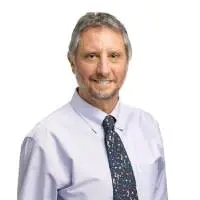
CEO
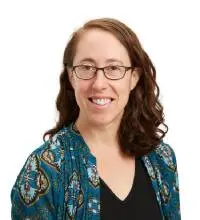
Medical Director

CFO

Clinical Director
Accreditations

The Commission on Accreditation of Rehabilitation Facilities (CARF) is a non-profit organization that specifically accredits rehab organizations. Founded in 1966, CARF's, mission is to help service providers like rehab facilities maintain high standards of care.
CARF Accreditation: Yes
Contact Information
471 Chestnut Street
Springfield, MA 01107






